Are you preparing to write a recommendation letter for a doctoral program? Crafting a strong letter can be pivotal in helping a candidate stand out among a sea of applicants. It's not just about listing accomplishments; it's about painting a vivid picture of the individual's strengths and potential for success in their academic journey. Ready to dive into the nuances of writing an impactful recommendation? Let's explore this essential topic further!

Applicant's academic achievements
The applicant has demonstrated exceptional academic achievements throughout their time at XYZ University, consistently earning a GPA of 3.9 on a 4.0 scale. Their performance in courses such as Advanced Quantum Mechanics and Statistical Thermodynamics further exemplifies their intellectual prowess, as they achieved top scores in both classes, ranking within the top 5% of their cohort. Participation in research projects, including a groundbreaking study presented at the 2022 National Physics Conference, showcases their commitment to contributing to their field. Furthermore, the applicant has published two papers in peer-reviewed journals, "Journal of Applied Physics" and "International Journal of Quantum Chemistry," emphasizing their ability to conduct original research and disseminate findings effectively. These accomplishments reflect their readiness and potential for success in a doctoral program.
Research experience and contributions
Research experience in doctoral programs often involves collaborative projects, innovative methodologies, and significant contributions to existing knowledge. Candidates frequently engage in laboratory work, field studies, or literature reviews, demonstrating expertise in their specific disciplines. Contributions may include publishing research findings in reputable journals such as Nature or The Journal of Chemical Education, presenting at renowned conferences like the American Psychological Association Annual Convention, or securing funding from agencies such as the National Science Foundation. These experiences not only showcase a candidate's intellectual rigor but also their commitment to advancing their field through critical inquiry and effective communication. Such candidates are prepared to tackle complex problems and make impactful contributions to academia and beyond.
Personal qualities and character
A doctoral program candidate's personal qualities and character play a crucial role in their suitability for advanced study and research. These qualities, such as determination, resilience, and integrity, often manifest in their academic pursuits and interpersonal interactions. For instance, a candidate who demonstrates a strong work ethic consistently seeks to overcome challenges, such as balancing rigorous coursework and research commitments, indicative of their commitment to academic excellence. Their ability to collaborate effectively with peers during group projects or conferences highlights qualities like empathy and respect for diverse perspectives, essential for thriving in a research-intensive environment. Moreover, a candidate's engagement in community service or mentoring activities can reflect their leadership skills, commitment to fostering inclusive academic networks, and motivation to contribute positively to both their field and society. Such character traits enhance a candidate's potential for growth, innovation, and meaningful contribution to their discipline through their doctoral studies.
Alignment with the doctoral program
A strong alignment with a doctoral program is exemplified through the candidate's research interests, prior academic achievements, and relevant experiences. For instance, a candidate who has conducted extensive research in climate science may find a harmonious fit with a doctoral program focused on environmental studies, particularly at esteemed institutions such as Stanford University or MIT. Engaging in experiential learning opportunities like internships at organizations such as the Environmental Protection Agency (EPA) can further solidify their commitment to the field. Additionally, a track record of publishing articles in peer-reviewed journals like the Journal of Climate can demonstrate expertise and dedication, aligning seamlessly with the program's expectations for scholarly contributions. Furthermore, involvement in academic conferences such as the American Geophysical Union (AGU) annual meeting highlights the candidate's proactive approach to networking and knowledge sharing, enhancing the overall alignment with the intellectual community of the doctoral program.
Specific examples and anecdotes
A strong doctoral program recommendation should highlight the candidate's academic prowess, research capabilities, and personal attributes through specific examples and anecdotes. For instance, during a research project on renewable energy (such as solar power), the candidate demonstrated exceptional analytical skills by designing an experiment that reduced costs by 30%. This project, conducted at the Massachusetts Institute of Technology (MIT), showcased their ability to apply theoretical knowledge to practical scenarios. An anecdote detailing a collaborative effort with peers in a graduate seminar at Stanford University illustrates the candidate's leadership skills, as they successfully moderated intense discussions, fostering an environment of respect and intellectual curiosity. Their determination was evident during a summer internship at a leading research facility in California, where they logged over 200 hours developing algorithms to improve data accuracy, ultimately influencing the project's overall success. Such experiences substantiate the candidate's potential as a future leader in academia.
Letter Template For Doctoral Program Recommendation Samples
Letter template of professional endorsement for doctoral program application
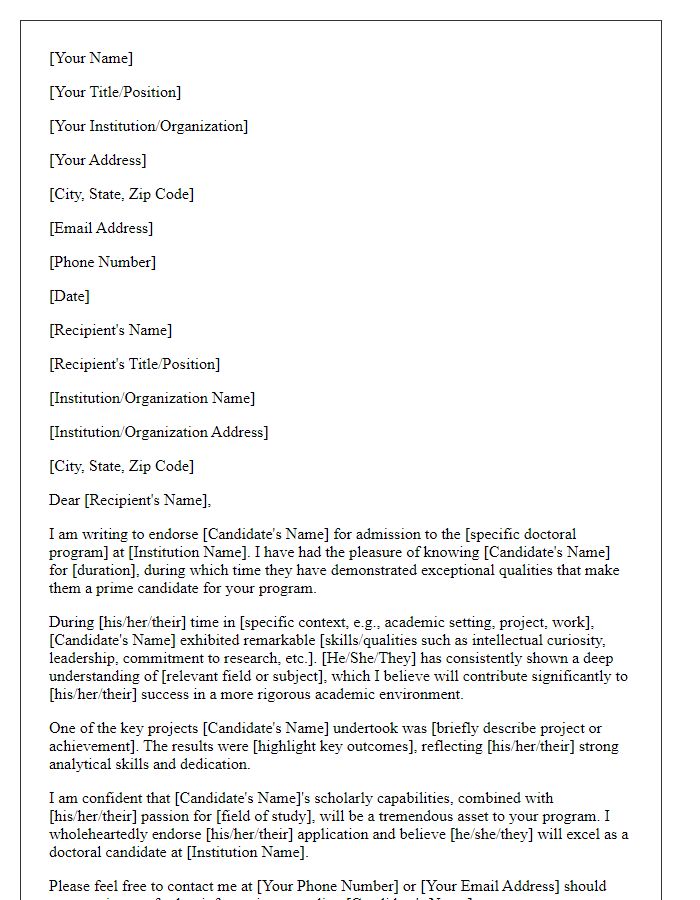

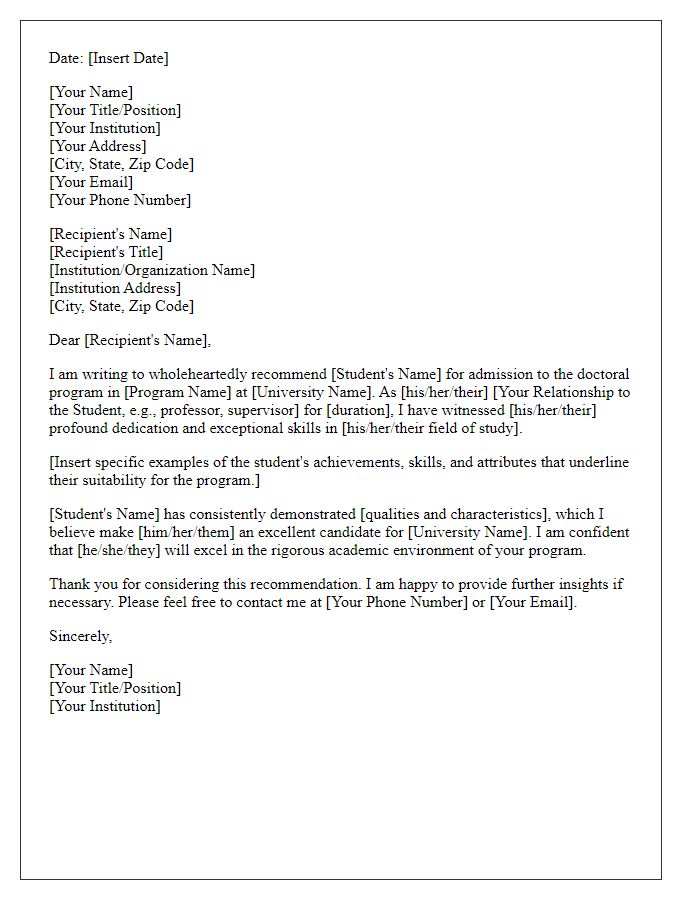
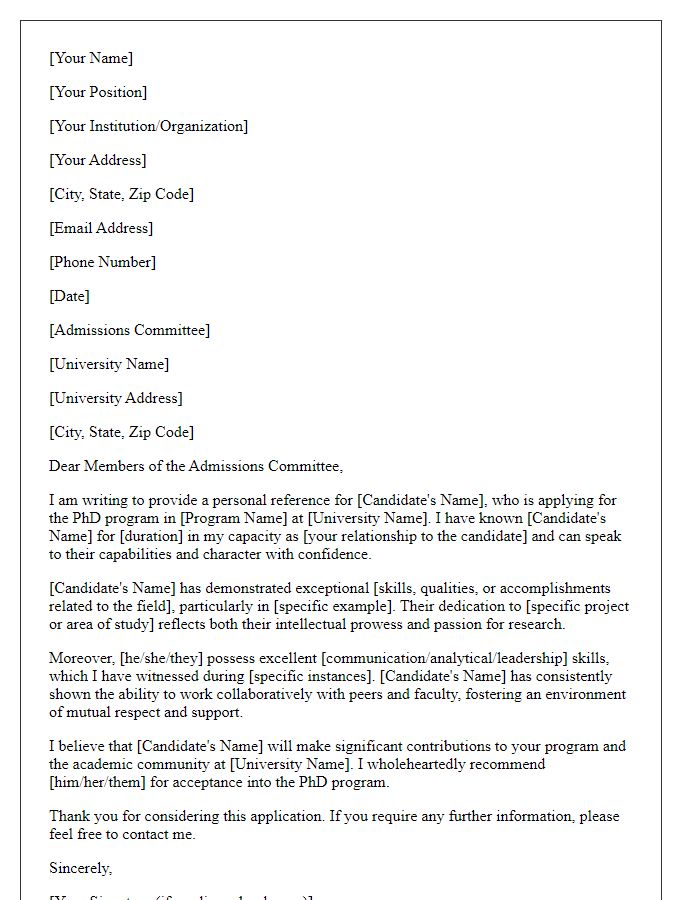
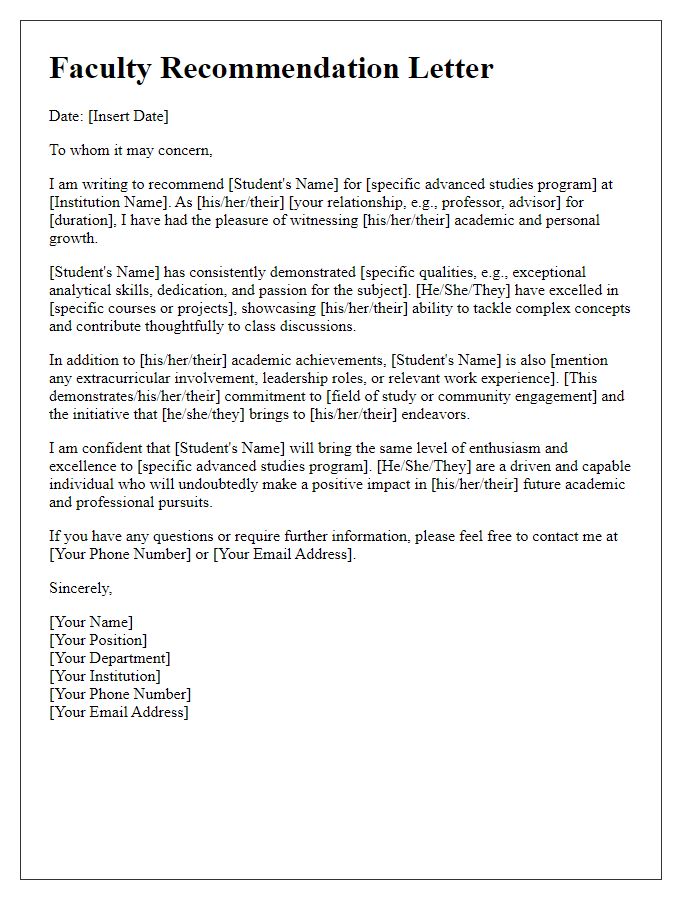
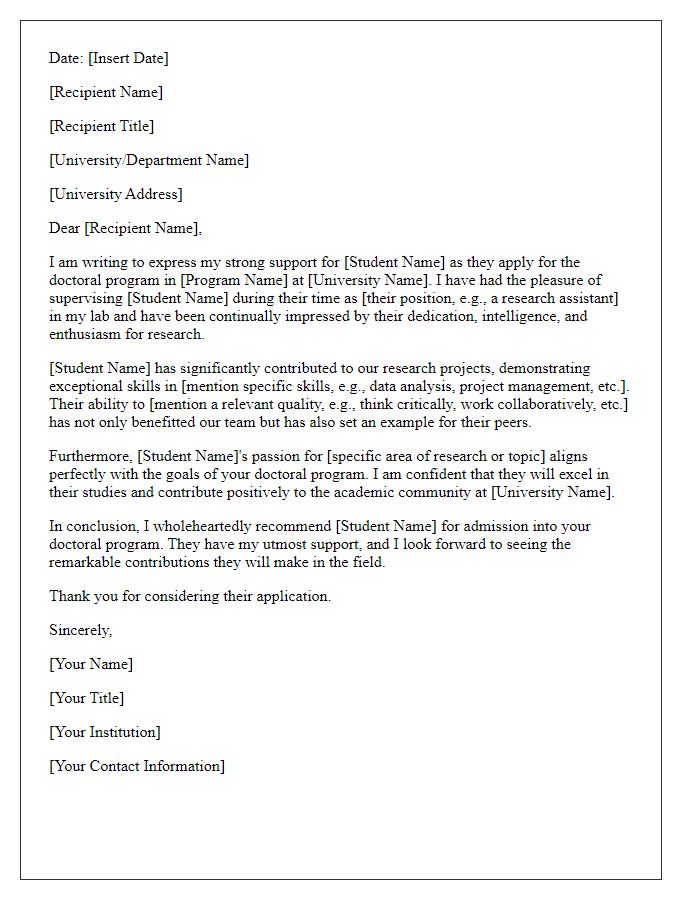
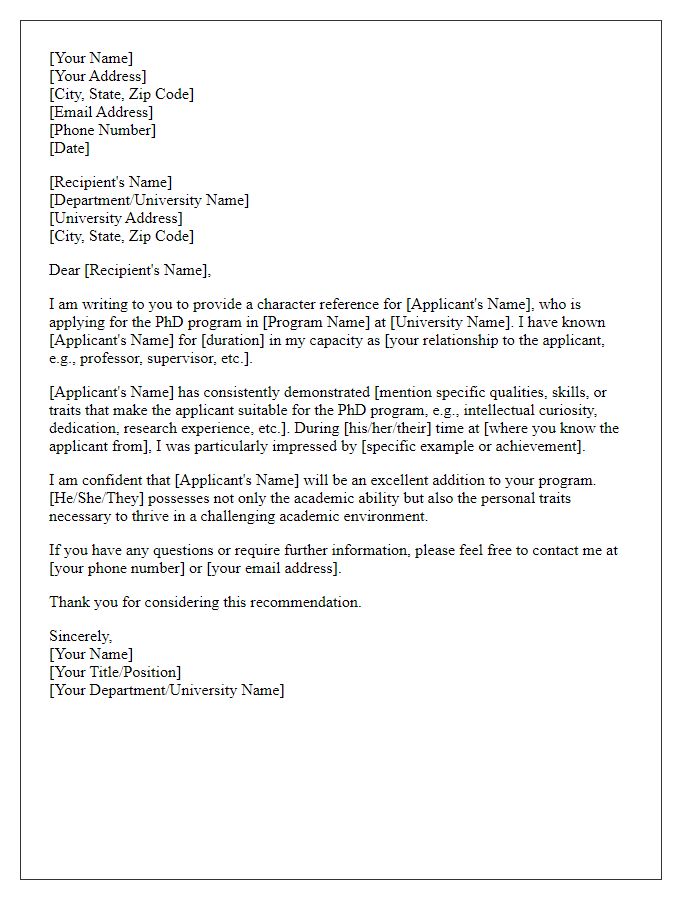
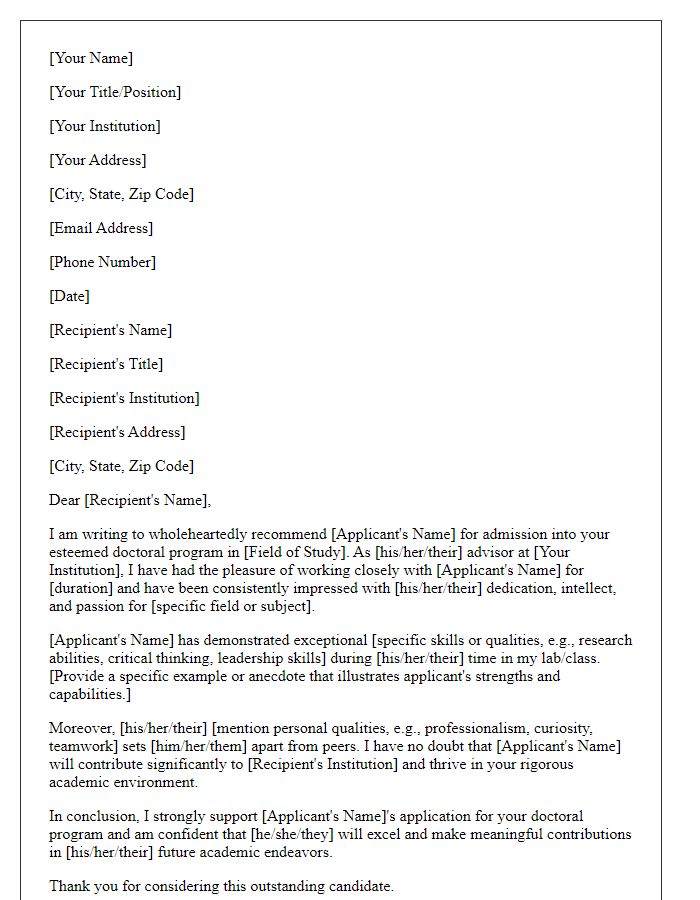
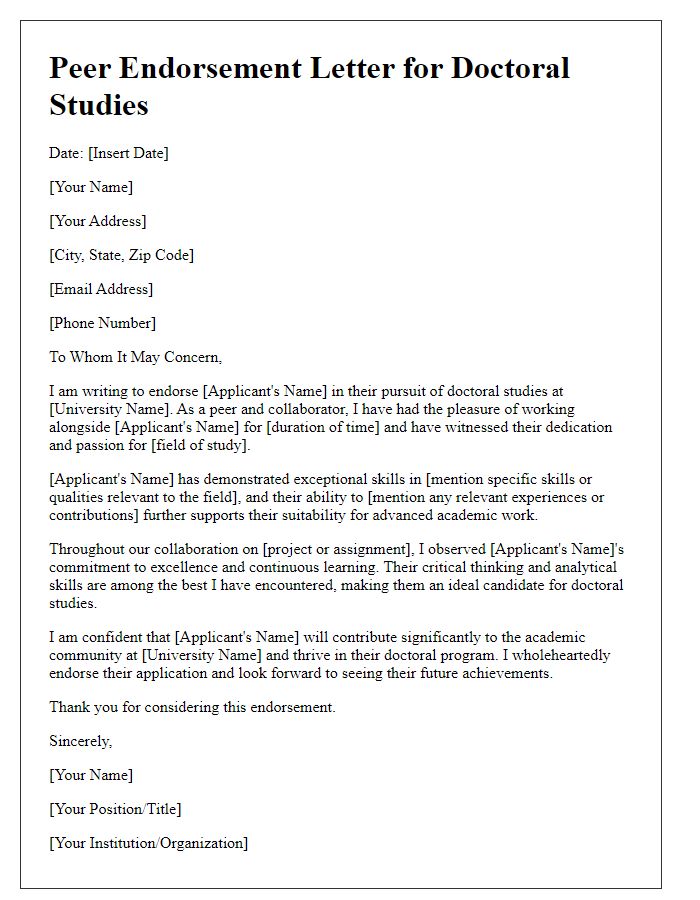
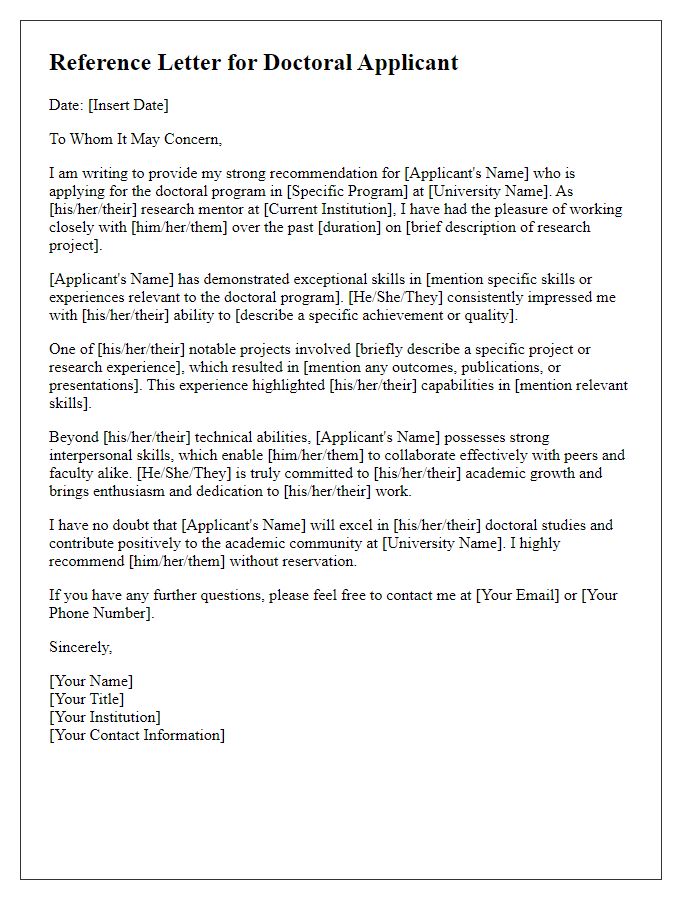
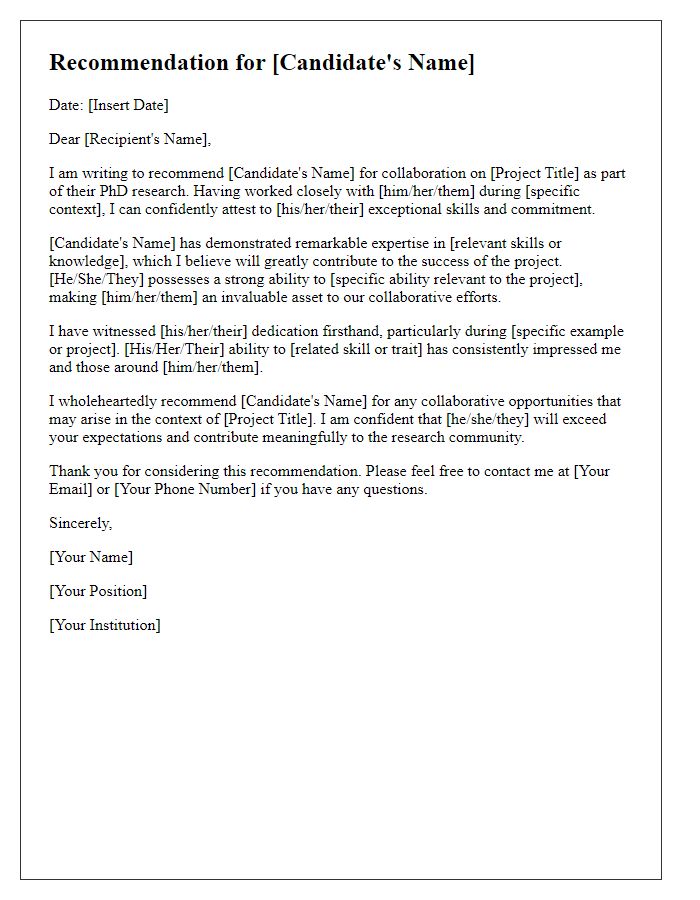


Comments